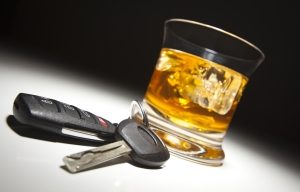The summer season is upon us, which for most families means vacations are nearing. The beautiful weather and seemingly stable gas prices may motivate some to make this year’s vacation a road trip. Road trips can be extremely fun and entertaining, while also proving educational for all involved.
Whether you’re considering a trip to see family or you simply want to hit the open road with no itinerary, consider these tips to staying safe during your summer road trip:
- Purchase an atlas. Although most people have invested in a GPS system, they aren’t always foolproof. Construction and other factors can lead to unreliable electronic directional devices, so having a backup is important. Even more important is providing control of the map to a passenger so that drivers are not distracted while operating the vehicle.
- Brush up on your tire changing abilities. If you experience a flat tire while on the road, stop the vehicle on flat, firm ground away from traffic. Follow safety procedures such as placing traffic cones, or at the very least use your hazard lights. The hubcap is the first thing that should be removed by using a wrench to loosen lug nuts. Turn each nut counterclockwise once, leaving the wheel attached until you’ve jacked the vehicle up. The tire should be jacked until it is four inches off the road. Once this is complete, you may finish removing the hubcap and tire. Now you’re ready to replace the tire with the spare. Make sure to tighten the lug nuts sufficiently and re-check them once the tire has been lowered to the ground. Once you’re done, the next stop should be to a mechanic to replace the spare.
- Be able to check the oil and radiator fluid in your vehicle before starting your trip. Oil should be checked when the vehicle is cool. Simply list the hood and remove the dipstick, which measures your vehicle’s oil level. The car manual should be able to point you to its location if you’re having trouble finding it. Wipe the stick clean with a napkin or rag, reinsert it, and then remove it again. The oil level should fall within the area on the stick marked with crosshatches. If not, simply add a quart of the oil type recommended in the owner’s manual. Radiator fluid can be found beneath the vehicle’s hood in a clear plastic tank. It is marked with two lines. The lower line is the indicator to whether you should add fluid. If the liquid falls below that line, simply add the recommended type of fluid from the manual.
- In the event that your vehicle breaks down, you should be prepared. Use your hazard lights and place emergency triangles behind the vehicle. All passengers should exit the vehicle and stay far away from the road. If this cannot be safety achieved, remain belted in your vehicle. Call for help right away.
- Traffic often causes serious auto accidents, so it’s smart to travel against rush-hour traffic. Cities should be navigated in the evenings and exited in the A.M.
- Listen to something that keeps you aware of surroundings. Comedy channels have been suggested to improve driver awareness.
At Jones & Swanson, our experienced lawyers represent victims that have been injured in automobile crashes. We want your summer vacation and all road trips to be safe, so it is important to follow the rules of the road and practice safe driving. Unfortunately, it is not always possible to avoid wrecks, so if you or someone you know is injured in a car accident this summer, you should know you rights. If the crash was caused by another party, your expenses, medical and otherwise, may be covered under their insurance policy. Attorney Andrew W. Jones knows how to deal with those companies in a way that ensures the most possible compensation for you, so contact our Marietta law offices today for a free initial consultation.









